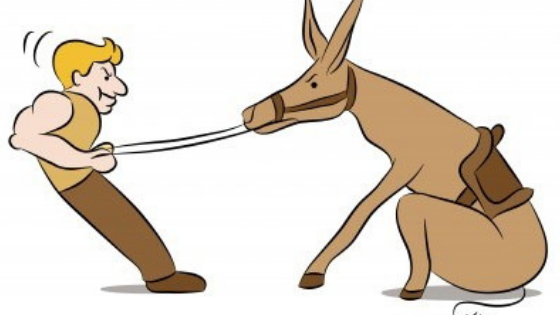|
There are whole industries dedicated to helping people change habits:
There are hectares of books written about human psychology, changing behaviour, habit change. Yet people are still overweight; un-fit and struggling with how to effectively change their un-wanted habits Changing habits is a bid deal
Our habits are formed over a long period of time. Until they become automatic behaviours. Changing something that you have done automatically towards a new desired behaviour is tough. Your unconscious being will rebel. It is no use committing to exercise the night before if you don’t drag yourself out of bed when that alarm goes off. You won’t feel like getting up early because your habit compels you to stay; the bed feels comfortable, you feel tired, you convince yourself what a great effort it would be to get up, look for excuses (‘is it raining outside?’)? These sensations mean that you will need to wilfully decide to get up and go. You need to choose to behave differently to the way you feel. Changing habits requires that we pay the right amount of attention to these moments in our life. The ‘right amount’ is just enough to enable you to make a positive decision. And it is that critical element that most behaviour change models overlook. One of the few things we feel we genuinely have control over is what we pay attention to. We choose to focus on, to ignore, or to actively avoid focusing on the reality of life in each moment. Changing habits requires that you pay an appropriate amount of attention in the moments when it matters How we sabotage ourselves We typically avoid paying the right amount of attention through three primary avoidance strategies. Not to bother It’s easy to simply not bother directing your flow of awareness. The alarm goes off, you roll-over and subtly, deliberately, let your mind forget to pay attention and let this moment slip by. You notice the thought arising in your mind and simply don’t bother to catch it. 2. Give into emotion You surrender to your feelings and allow your emotions to take overt control over you; this might be considered ‘Panic’. If you have ever felt incapacitated by high emotion you know what this is like. In the context of changing habits this manifests as allowing your emotional attachment to the habit to override the reality. For example: “I cannot cope if I don’t have that cigarette”. 3. Change the subject You make a joke, focus on something else, allocate some blame, create a false alibi, find a reason not to act or otherwise divert your focus of attention elsewhere. Strategies for Paying Attention - Raise the Volume Just like a mixing desk for a musician you can raise the volume and tune into the things that will enhance the music and lower the volume of the noise. Pay the right amount of attention to the right stuff. You can do this by allowing the following three ideas to arise in your mind and when they do, focus on what they mean. It will change the mix of thoughts in your head and you will be paying attention to the stuff that will enable change. 1. WIIFM: What is in it for me? Connect it with something important to you (when you are tempted to stay in bed, pay attention to why you want to exercise, why does it matter? Why is it important you?) 2. There is only this moment Remember this is the ONLY MOMENT YOU HAVE, too often we say ‘next time’ but ‘next time’ is like ‘tomorrow’ - it doesn’t exist. This moment is the only moment you have to change your habit. 3. Change requires change Shake up your comfort zone. Enjoy behaving differently to the way you feel – remember you will feel like maintaining the status quo, the old habit feels right – know that to change you have to change. This means behaving differently to the way you feel in the moment when it matters. The ideas above will help you get into the right frame of mind to act, but you still need to act. So take action! I hope this helps. I would love to read your stories of habit change; so feel free to make a comment and share a story that might benefit other readers. Now I need to go and pay attention to my coffee habit. Comments are closed.
|
|
Copyright 2019: Donovan Ataraxy Pty Limited. All rights reserved.

